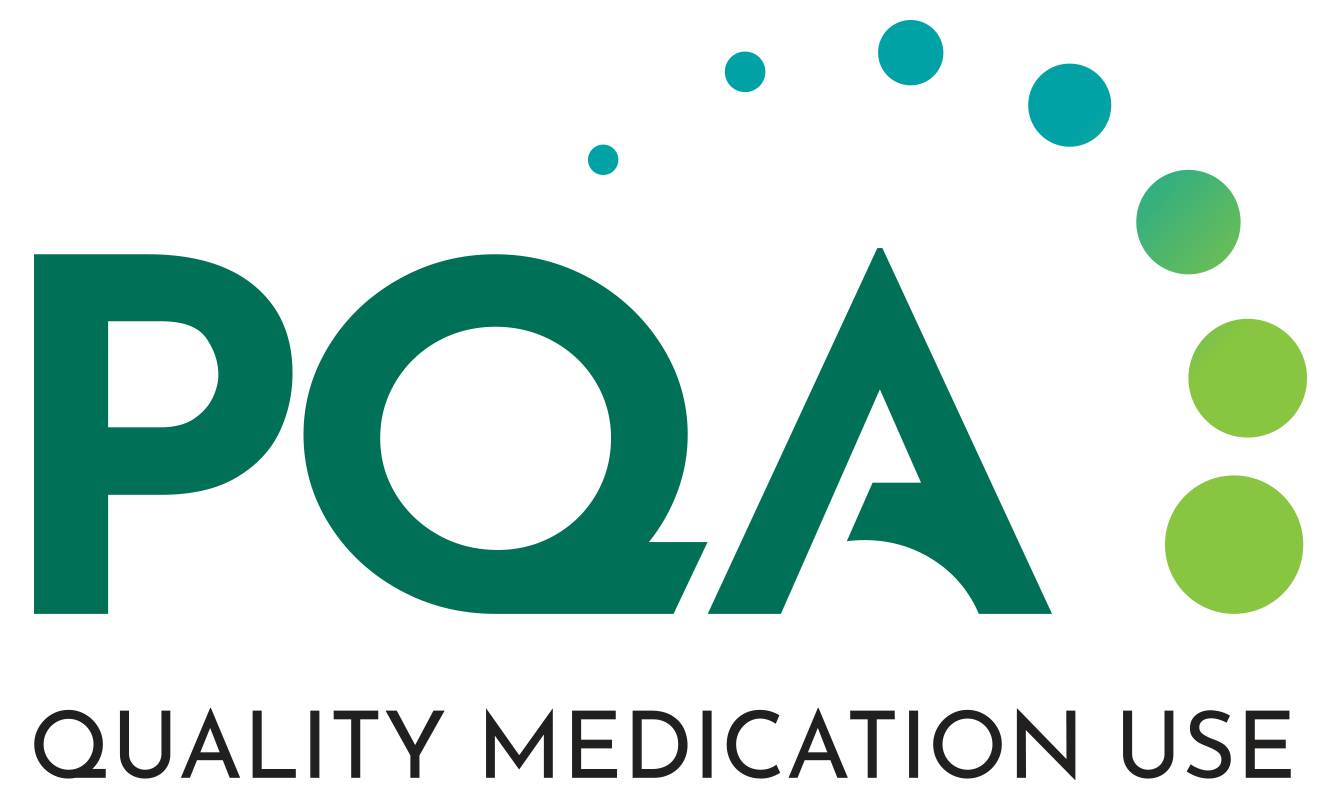
PQA-Supported Research Examines Cost Barriers to Medication Access and Adherence

The Pharmacy Quality Alliance developed the “Medication Access Framework for Quality Measurement” to address the social determinants of health that hinder patient medication access and contribute to poor health outcomes.
The Pharmacy Quality Alliance (PQA) developed the “
- perceived need
- help seeking
- encounter
- prescribing
- prescription adjudication
- prescription dispensing
- adherence
This important framework provides researchers and measure developers with clear targets for measure development and quality improvement initiatives.
In June 2020, PQA, in collaboration with the National Pharmaceutical Council announced research grants to The Johns Hopkins Hospital and the University of Rhode Island to leverage the framework and study patients’ real-world medication access problems.
Their results were featured during a May 17
Examining a Real-Time Prescription Benefit Tool to Improve Medication Access
Jeremy Epstein, MD, and Jessica Merrey, PharmD, MBA, of The Johns Hopkins Hospital, presented their research on the Impact of a Real Time Prescription Benefit Tool on Medication Access. The tool allows prescribers access to real-time medication cost estimates and patients’ electronic health records during the care process. The tool could address cost and insurance barriers across most of the MAPJ steps patients encounter while attempting to gain access to medications.
Merrey said cost and insurance are frequent barriers to access, yet prescribers may not know the patient’s specific out of pocket medication costs.
“We know from previous literature that there is a direct relationship between the cost of a medication and the likelihood that it will be left at a pharmacy [and] not purchased,” Merrey said.
The study sought to determine the impact of the tool on medication access and workflow by monitoring new prescriptions (prescribing) and the rates of change in:
- prescriptions (prescribing and prescription adjudication)
- cancellations (prescription dispensing)
- patient prescription abandonment (prescription dispensing and adherence)
Prescribers who used the tool noted decreases in prescription cancellations, abandonment and time needed to prepare and dispense prescriptions to patients, according to Epstein. The study’s findings support the use of real-time benefit tools to improve the care process and medication access for patients.
The Impact of Out-of-Pocket Costs on Oral Anticancer Medication Adherence
Steven Kogut, PhD, MBA, RPh, and Andrew Descoteaux, MS, from the University of Rhode Island College of Pharmacy, presented their work on the Impact of Patient Out-of-Pocket Costs for Oral Anticancer Medications on Medication Adherence, with a focus on barriers that can impact prescription adjudication, dispensing, and adherence.
As more viable oral agents become available for the treatment of cancers, patients are taking on more responsibility in their outpatient care. Though adverse effects can be a major barrier, Kogut said “the most formidable barrier to adherence is the high cost of many cancer medications coupled with the substantial cost sharing built into pharmacy benefit designs.” This can lead to financial distress and increased disparities in care, particularly for lower income patients.
Through a retrospective observational study, the team observed trends in medication cost across different types of cancer and adherence rates for 38,000 patients taking oral anticancer medications from 2010-2018. Patients with renal, liver, or blood cancers spent, on average, more than $600 monthly on out-of-pocket for medications, whereas patients with prostate cancer spent on average just over $100 monthly. The highest out-of-pocket costs were associated with greater odds of medication nonadherence.
Additionally, when accounting for race, ethnicity, and household size, the “highest out of pocket costs were significantly associated with medication nonadherence in most cancer types.” This supports the MAPJ framework’s assertion that cost is a major barrier to patient adherence.
Next Steps in Addressing Medication Access
Medication access is an ongoing challenge in health care that has a high impact on patient outcomes. The research team at University of Rhode Island College of Pharmacy hopes to next examine whether nonadherence in oncology patients due to cost barriers is associated with future health care utilization. They also plan to conduct studies to evaluate interventions that promote adherence to oral anticancer medications.
PQA has a continuing interest in identifying and reducing barriers to medication access, particularly related to SDOH. Each common barrier across the seven nodes of the MAPJ framework can be studied further to improve medication access.
Beyond research, PQA is developing
PQA is committed to addressing SDOH and health equity issues, as they are major influencers of medication access, safety, adherence, and appropriate use.
Sabree Burbage, PharmD, MPH, is the inaugural Real World Evidence, Population Health, and Quality Research fellow, a collaborative program supported by the Pharmacy Quality Alliance, the UNC Eshelman School of Pharmacy and Janssen Scientific Affairs.
Newsletter
Stay informed on drug updates, treatment guidelines, and pharmacy practice trends—subscribe to Pharmacy Times for weekly clinical insights.


























